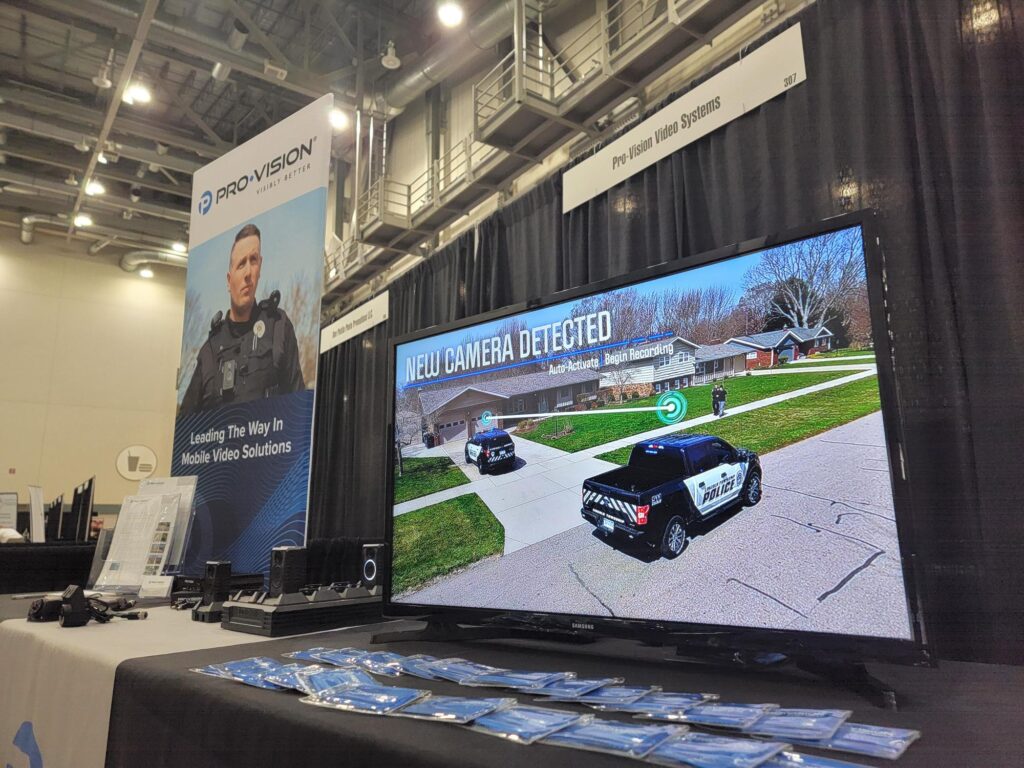
What I Learned at the Michigan Sheriffs’ Show
I had the opportunity to attend the 2022 Michigan Sheriffs’ Association Fall Conference last week to speak with sheriffs and how they use — or don’t use — mobile video solutions.
One thing that surprised me was how some departments opted not to invest in an in-car camera system, exclusively using body-worn cameras.
Their main reasoning was they just didn’t have the budget to invest in both video systems. In a perfect world, they would love to have both mobile video systems.
From a financial standpoint, it makes sense, as smaller departments have budget restrictions and must do the best they can with the amount of money that is available. However, a body camera is only one piece of the puzzle when it comes to capturing footage.
Here are four reasons why you should use an in-car camera system in addition to body-worn cameras.
Tell the Whole Story
An in-car camera system can fill in the blanks left by a body camera. For example, let’s say an officer is administering a sobriety test, and another vehicle clips the officer while traveling on the road. Unless the officer’s body camera was facing that vehicle, it will be impossible to tell what the make and model of the vehicle was, and that body camera won’t be able to capture the license plate.
With an in-car camera system, any forward-facing, side or rear cameras will record other vehicles and can help officers determine who was at fault.
Exonerate Your Officers
An in-car camera system could help exonerate officers from any wrongdoing. Let’s say there is a use-of-force complaint against your officer: an arrested individual accused an officer of intentionally hitting their head on the police vehicle as that officer was placing the individual in the vehicle.
In this example, an in-car camera system provides a better perspective of the incident to confirm or refute the claim, whereas a body camera could miss the incident entirely.
Being unable to prove your officers’ innocence could be costly.
Keep Your Officers Safe
In-car camera systems also help keep officers and those around the officer safe. For instance, police officers conduct sobriety tests in front of the vehicle so a dash camera can capture the test from another point of view. However, standing on the road or just off the road can be dangerous for officers and civilians on a busy street or highway.
With an in-car camera system, the officer can administer the test on the side of the vehicle, far enough away from the road so there is no danger of being hit by an oncoming vehicle.
While budgetary concerns often keep smaller police departments from using in-car camera systems, body cameras alone are not enough to tell the whole story and exonerate them from false claims while also keeping them and those around them safe.
Reliability
In-car camera systems begin recording automatically and, unlike body cameras, cannot be turned off — whether accidentally or intentionally. It’s not uncommon for a body camera to fail during key moments (or fall off entirely).
In car-camera systems aren’t susceptible to damage or fall off during a physical exchange, and the video is not shaky or unsteady. Utilizing an in-car camera system ensures you will have footage of the incident near the vehicle.
If you’re looking to outfit your police department with an in-car camera system, contact our sales department to learn more.